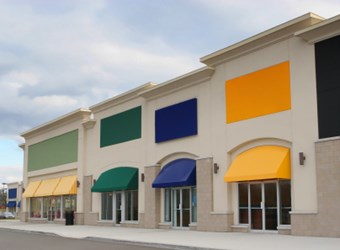Research Shows That While Nearly 8 In Ten Americans Shop Online, They Still Prefer Brick-and-Mortar

By Christine Kern, contributing writer

Study also reveals rising skepticism of online reviews for ecommerce products.
New technologies are exerting tremendous influence over a wide range of American’s commercial behaviors, from product evaluation to payment methods, according to new research from the Pew Research Center. But while nearly 8 in 10 Americans shop online, the study found that most still prefer to shop in actual brick-and-mortar stores for their purchases. According to the findings, 79 percent of all Americans have made some kind of online purchase, while 51 percent have made a purchase using a cellphone and 15 percent have bought items by following a link from social media sites.
These numbers represent a huge spike from the first Pew online shopping survey in June 2000, which found just 22 percent having made online purchases. “The proliferation of ways to purchase in just a decade is incredible,” says Aaron Smith, associate director of research at Pew. “A decade ago, buying something online using a cellphone wasn’t ‘a thing,’ and now half the population is doing that.” Social media as a concept today is very different than what it was in 2007, he adds, when Facebook users were largely students and it was not yet a significant marketing channel for retailers.
And yet, despite this spike, it seems that brick-and-mortar stores are still the preferred avenue for shopping. Sixty-four percent of respondents said that – all things being equal – they actually prefer buying from physical stores over purchasing online. This is an important message for brick-and-mortar retailers to provide what their customers are looking for in order to better compete with their online rivals. One thing that does push customers to shop online is price point: 65 percent said that they compare in-store and online prices before making a purchase and choose the cheaper option. And 21 percent said that they would buy from stores without checking online prices, while 14 percent say they typically buy online without checking out prices at physical locations.
Price-comparison is also important to shoppers, and 86 percent think it’s important to be able to compare prices from different sellers; 84 percent want to be able to ask questions about the products before purchase; and 84 percent say that buying from sellers they are familiar with is important. And 78 percent want to be able to try a product out in person, 77 percent want advice from someone they know about a potential purchase, and 74 percent rely on product reviews posted online. In fact, 45 percent use cell phones while in-store to check online product reviews or to price-compare.
The study also revealed, however, that while shoppers rely heavily on online reviews before making purchases, their skepticism of these same reviews is on the rise. In fact, while 51 percent say that they think that online reviews are accurate, 48 percent say they suspect reviews are biased or untruthful in character.
“The key takeaway for online retailers is knowing that consumers really want it all when making purchase decisions,” Smith says. “Their expectations are incredibly high. They expect to ask questions, get answers, try things on in person, read reviews and more, and still have the convenience of buying online.”
Pew's results support the findings of other recent reports that have traced the ebb of retail cash from brick-and-mortar to the web. A study from Adobe last month found that e-commerce sales were up more than 16 percent the weekend after Black Friday as compared to the same period the previous year, while physical retail experienced a modest drop.
